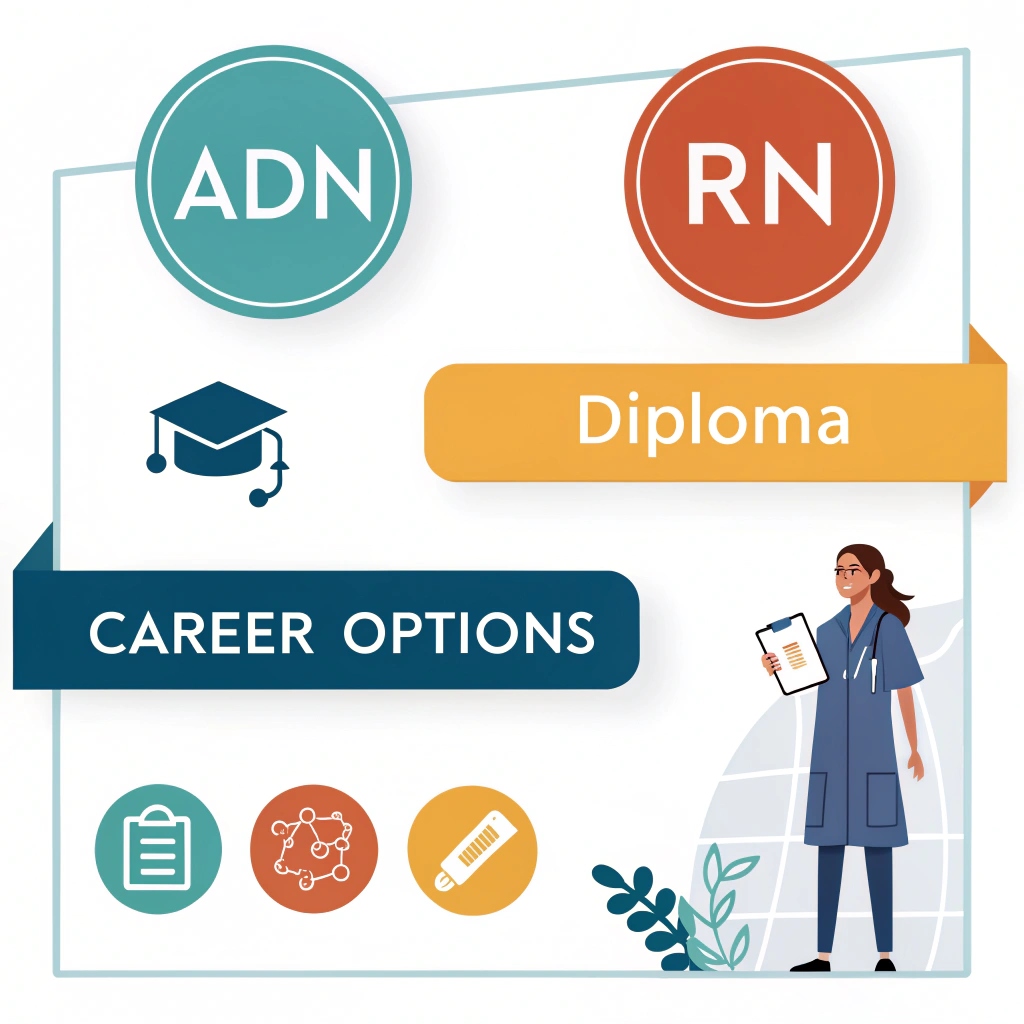🩺 ADN vs RN: What’s the Difference and Which Is Better?
If you want to become a nurse, you might hear the words ADN and RN. These are two different paths in nursing. This article will help you understand what ADN means, how it compares to RN, and which one might be better for you.

📘 What Is the Full Form of ADN?
ADN stands for Associate Degree in Nursing. It is a college degree that helps you become a registered nurse. Most ADN programs take 2 years to complete and are offered at community colleges.
🧑⚕️ What Does ADN Mean in Nursing?
In nursing, ADN means you have finished a program that teaches you how to care for patients. After you finish your ADN, you must pass a test called the NCLEX-RN to become a Registered Nurse (RN).

🔍 What Is the Difference Between ADN and RN Diploma?
Here’s how ADN and RN diploma are different:
| Feature | ADN (Associate Degree) | RN Diploma |
|---|---|---|
| Length of Study | About 2 years | About 2–3 years |
| Type of Program | College degree | Hospital-based program |
| Career Opportunities | More options with ADN | Fewer options than ADN |
| Education Level | College-level | Not a college degree |
ADN is more popular today because it offers better career growth and is accepted by more employers.
✅ What Is Better, ADN or RN?
Many people think ADN is better than the RN diploma because:
- It gives you a college degree
- It helps you get more jobs
- You can later study for a BSN (Bachelor of Science in Nursing)
- It’s faster and cheaper than a 4-year degree
But both ADN and RN diploma can lead to becoming a nurse. It depends on your goals and how much time and money you want to spend.
